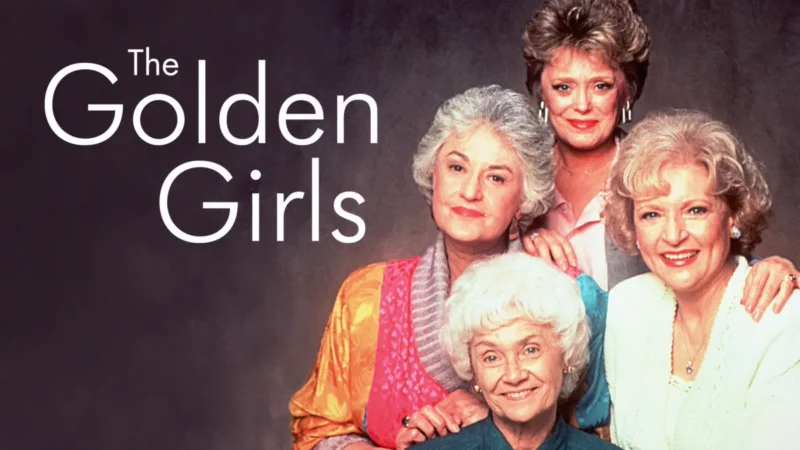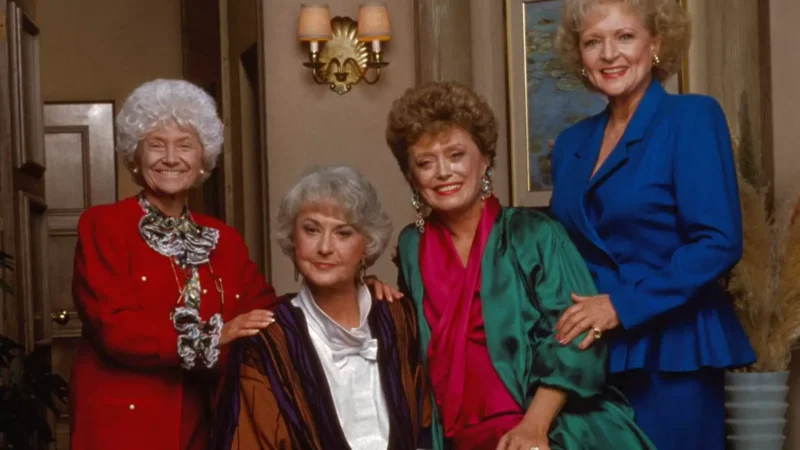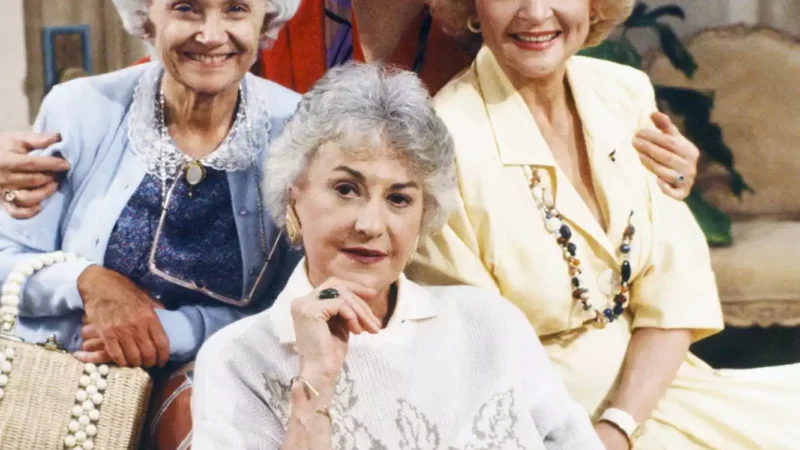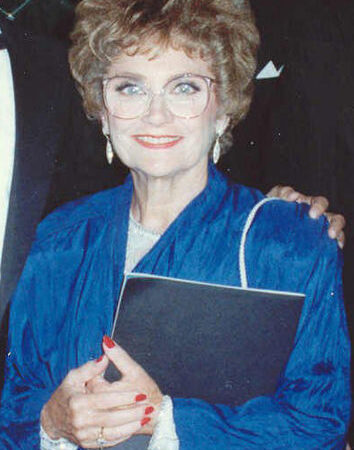A comedic tour de force with the greatest sitcom theme song ever, The Golden Girls peeled back the layers of aging and tackled major societal issues with boldness and humor.

An Azinger-infused whirlwind of shoulder pads, pastels, and perms. Rattan furniture, DayGlo linens, and Formica. The Golden Girls—the iconic sitcom that aired from 1985 to 1992—had a distinct visual style and vibe that set it apart, earning 68 Emmy nominations and 11 wins. Created by producer Susan Harris, the series spawned multiple spin-offs and became a cult classic known for its high-camp appeal.

The premise is simple: three older women decide to live together. There’s the sharp, sardonic ex-teacher Dorothy Zbornak (Bea Arthur), the sweet but blissfully naïve Rose Nylund (Betty White), and the sultry, southern belle Blanche Devereaux (Rue McClanahan). Initially, their living arrangement is out of convenience, but soon enough, they form a tight-knit, unshakeable friendship. In the pilot, they’re joined by a fourth: Dorothy’s mother, Sophia Petrillo (Estelle Getty), a sharp-tongued, mischievous old lady who initially plays the role of a comic antagonist—often stealing the spotlight with her no-nonsense attitude.
For a comedy set primarily in a Florida kitchen, The Golden Girls had incredible talent. The four leading ladies were masters of comedy, delivering performances that were both humorous and heartfelt. An example of their comedic prowess can be seen in the Season 1 episode “The Way We Met,” where Betty White makes Rue McClanahan and Bea Arthur break character and laugh on set—a take that the showrunners wisely decided to keep in the final cut.
But The Golden Girls wasn’t just about laughs—it tackled serious topics with remarkable nuance. The series addressed heavy issues such as aging, mortality, infidelity, racism, depression, and addiction. Dorothy’s struggles with gambling, Rose’s blood transfusion and the looming threat of HIV, and even Blanche’s gay brother and his partner were all explored. The show’s unapologetic exploration of taboo subjects made it resonate strongly with the LGBTQ+ community, where it remains a beloved favorite, partly due to its unapologetic sass and fearlessness in addressing topics other shows shied away from.
But beyond its tackling of hard-hitting issues, The Golden Girls also underscored the power of chosen family. Dorothy, Rose, and Blanche—each feeling alienated from their past lives—found solace and strength in one another. Their story reflects the experience of many, particularly in the LGBTQ+ community, for whom creating a chosen family is essential when the biological one rejects them.
The show’s legacy lies not only in its humor but also in its honest portrayal of aging. The Golden Girls showed that old age isn’t just about decline; it’s about passion, adventure, wisdom, and yes—occasionally, some very wild moments of sexual agency. The show did all of this while maintaining its distinct comedic brilliance, fearlessly mixing absurdity with heartfelt moments.
Though the show’s final seasons began to veer toward exaggerated caricatures—particularly with Sophia’s transformation into a pranking, boundary-pushing figure—the series still delivered some of its finest moments in its later episodes. The two-part finale, written by Mitch Hurwitz (creator of Arrested Development) and featuring Leslie Nielsen as Dorothy’s love interest, stands as one of the series’ most memorable moments.
And let’s not forget about the theme song—the absolute gold standard of sitcom theme songs. In 2023, few things can lift you out of a mental rut like a Golden Girls marathon. By the time the credits roll, you’ll find yourself mentally lounging on the lanai, feeling inexplicably lighter than before.





